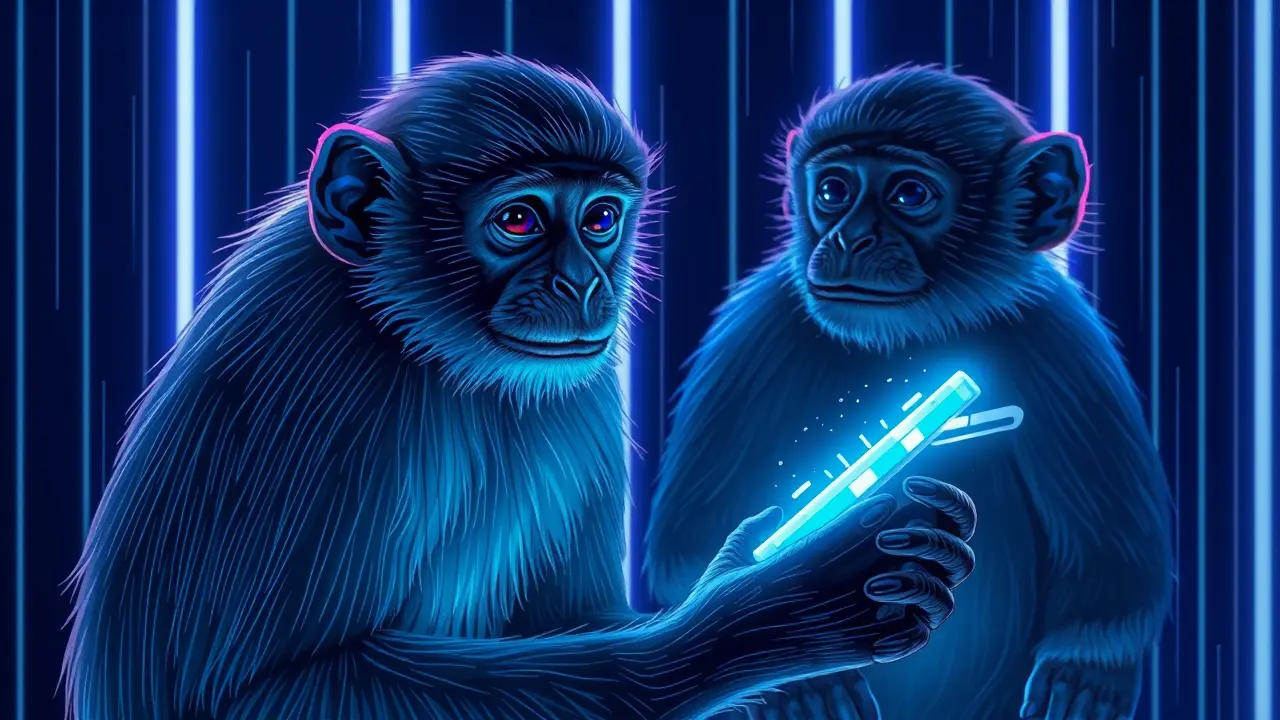
SciencebiologyAnimal Behavior
Monkeys Challenge Animal Rights Movement in Unusual Case
LA
Laura Bennett
8 hours ago7 min read
In a quiet research facility nestled in the American Midwest, an unusual legal battle is unfolding that challenges the very foundations of our relationship with the natural world, forcing us to reconsider what it means to be a person, to have rights, and to possess consciousness. The case centers on a group of capuchin monkeys whose spontaneous interactions with touchscreen devices—where one was observed seemingly engaging with the poetic fragment, 'I wasn’t fooled by these walls of my body / but loved them touched'—have sparked a profound philosophical and legal debate.This isn't merely about animal cognition; it's about the boundaries of legal personhood, a frontier previously dominated by human exceptionalism. I recently spoke with Dr.Aris Thorne, a primatologist who has spent thirty years studying these creatures, and he described watching the monkeys not as subjects in an experiment, but as individuals displaying curiosity, preference, and perhaps even a form of aesthetic appreciation. 'We've documented them making deliberate choices, showing frustration, and even appearing to find solace in certain visual patterns,' Thorne explained, his voice tinged with a reverence usually reserved for human artists.'To reduce this to mere stimulus-response is to ignore the complexity of their inner lives. ' This perspective is at the heart of the lawsuit filed by the Nonhuman Rights Project, which argues that these monkeys, given their demonstrated cognitive abilities, should be recognized as legal persons with a fundamental right to bodily liberty, thereby challenging their confinement.The opposition, represented by agricultural and biomedical research lobbies, warns of a slippery slope that could upend industries reliant on animal use, from farming to pharmaceutical testing. Yet, as I listened to the lawyers and the scientists, I kept returning to the human element: the animal rights activists who see this as the next great moral frontier, echoing the abolitionist movements of the past, and the facility workers who express a genuine, if paternalistic, affection for the animals in their care.This case, currently winding its way through a federal appellate court, is more than a legal curiosity; it is a mirror reflecting our own anxieties about intelligence, autonomy, and what obligations we hold toward other sentient beings. The outcome could redefine not just the cages we build for animals, but the ethical walls we've constructed around our own humanity.
#animal rights
#monkeys
#animal welfare
#activism
#featured
#poetry
#ethics
Stay Informed. Act Smarter.
Get weekly highlights, major headlines, and expert insights — then put your knowledge to work in our live prediction markets.
Related News
© 2025 Outpoll Service LTD. All rights reserved.
